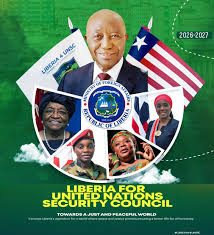Liberia: A Nation’s Journey Through Challenges and Resilience

Introduction
Liberia, known for its lush landscapes and rich cultural diversity, holds significant relevance in both regional and global contexts. Established as a settlement for freed American slaves in the early 19th century, the nation has faced numerous challenges, including civil strife, public health crises, and political instability. In recent years, however, Liberia has demonstrated resilience in its journey towards rebuilding and reforming its institutions, making it an intriguing subject of study.
Current Events
As of late 2023, Liberia has been navigating through various socio-economic challenges, compounded by the lasting effects of the Ebola outbreak and the global economic shift post-COVID-19. The government, led by President George Weah, is currently working to revitalize the economy, which has been affected by high inflation rates and unemployment.
In September 2023, the Bank of Liberia reported a slight rebound in agricultural exports, notably from rubber and palm oil industries, which are vital to the nation’s economic health. Nonetheless, many citizens still face hardships, as food insecurity remains an ongoing issue impacting thousands across the country.
Political Climate
The political climate in Liberia has seen significant changes as the nation approaches its 2023 presidential elections scheduled for October. The electoral process is crucial as it represents an opportunity for citizens to voice their choices and push for reforms that address years of governance challenges. The recent elections have drawn attention for their potential to either affirm or disrupt the current administration’s agenda.
International Relations
Liberia’s international relations are also crucial to its future. The country maintains robust partnerships with various international organizations, including the United Nations and the Economic Community of West African States (ECOWAS). These relationships have been instrumental in providing support for developmental projects and peacekeeping efforts within the region.
Conclusion
In conclusion, Liberia stands at a crossroads as it grapples with its past while striving for a better future. The pathway to growth and stability is laden with hurdles, yet the determination of its people and the ongoing support from global partners reflect a hopeful outlook. As upcoming elections approach, the decisions made in the coming months will significantly impact Liberia’s trajectory, influencing both its governance and economic recovery strategies. For readers, understanding Liberia’s evolving landscape offers not only insights into this remarkable nation but also highlights the dynamics of post-conflict recovery in West Africa.









